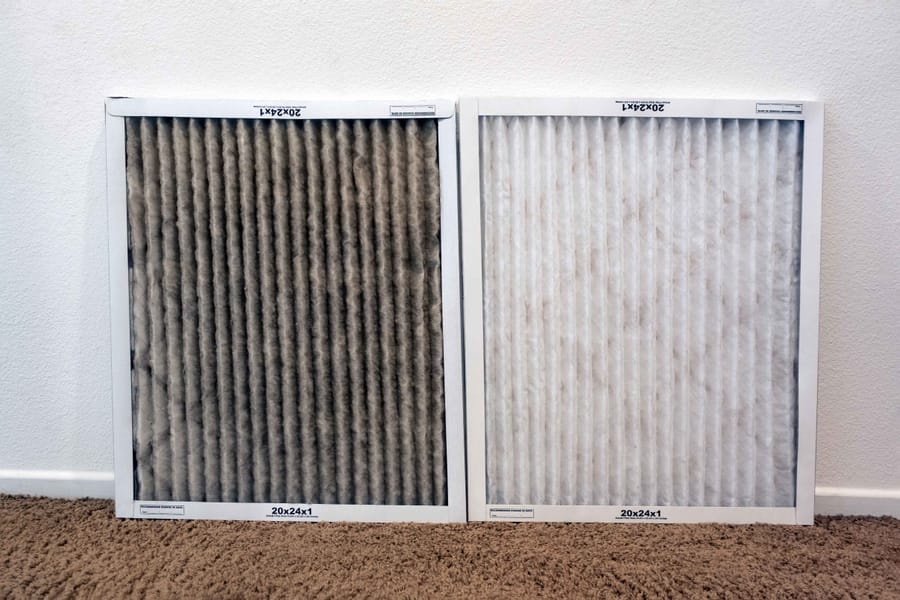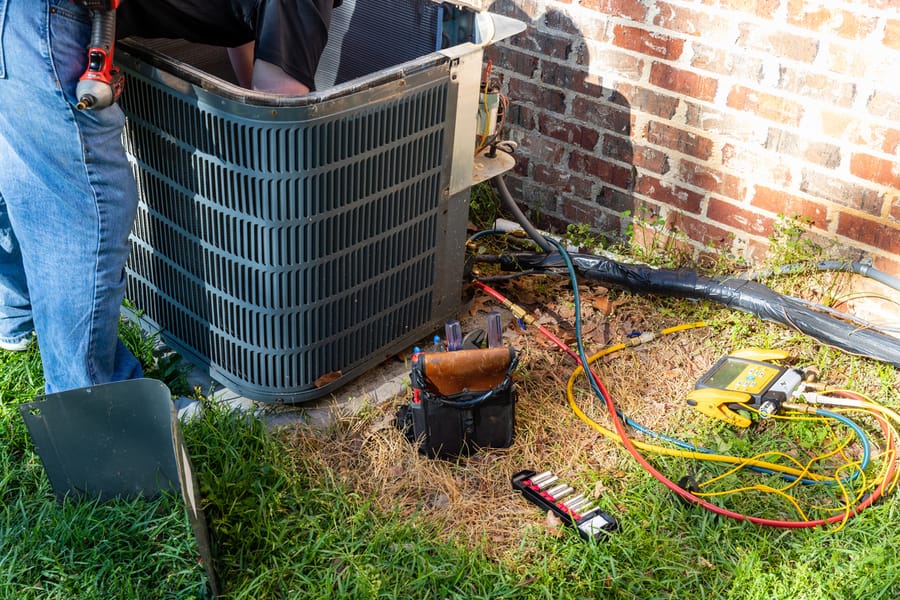4.6

How Often Should You Change Your AC Filter?

Changing your AC filter might not be the most exciting task, but it plays a big role in your home’s air quality and comfort. Many homeowners aren’t sure how often this task should be done—or why it matters. A dirty or clogged filter can cause airflow issues, higher bills, and even system breakdowns.
Understanding when and why to replace your filter can help you breathe easier and keep your system running efficiently. In this blog, we’ll explore how often to change your filter, signs it’s time, and what happens if you wait too long. We’ll also give you practical tips to help make the process simple.
Why Your AC Filter Matters
Your AC filter doesn’t just protect your HVAC system—it also protects the air you breathe. Filters trap dust, pollen, pet dander, and other particles that would otherwise recirculate throughout your home. A clean filter allows your air conditioner to run more smoothly, while a dirty one makes the system work harder, costing you more in energy and repairs. That’s why staying on top of filter changes is a crucial part of HVAC maintenance.
How Often Should You Change It?
Changing your AC filter isn’t a once-a-year chore—it’s an ongoing task that directly affects your comfort and air quality. How often you should change it depends on several factors, including your lifestyle, the type of filter you use, and how often your system runs. Homes with pets, allergy sufferers, or people who run their AC year-round may need to replace filters more frequently than others. Following general guidelines can help, but checking your filter regularly is the best way to stay ahead of potential problems.
Standard Recommendation
Most 1–3 inch filters should be changed every 30 to 90 days. Check the manufacturer’s instructions for your system’s specific needs.
Pet Owners
If you have pets, change the filter every 30 to 60 days. Pet hair and dander build up quickly and reduce filter effectiveness.
Allergy Sufferers
For those with allergies or respiratory concerns, aim for every 30 days to maintain healthier air quality.
Seasonal Usage
During peak usage in summer or winter, consider changing filters more frequently—especially if your system runs daily.
Signs It’s Time for a New Filter
Even the most disciplined filter replacement schedule might not catch every situation. Dusty homes, unexpected construction nearby, or indoor smoking can clog a filter faster than expected. That’s why it’s important to know what signs to look for. These red flags can tell you it’s time to swap out your AC filter, even if your last change wasn’t too long ago.
Higher Energy Bills
A clogged filter makes your AC work harder, driving up electricity costs.
Dust Buildup
If you notice more dust on furniture or around vents, your filter might not be trapping particles effectively.
Poor Airflow
Reduced airflow from vents could mean your filter is full and restricting circulation.
Visible Dirt or Discoloration
Remove the filter and check it—if it’s gray or packed with debris, it’s time for a replacement.
What Happens if You Wait Too Long?
It’s tempting to put off changing your AC filter, especially when everything seems to be working fine. But skipping this simple task can lead to major consequences over time. A dirty filter strains your system, decreases air quality, and can even lead to costly breakdowns. Knowing what can happen when you neglect your AC filter helps emphasize why this minor chore has a big impact on your home’s health and comfort.
Strain on the System
Your AC has to work harder to push air through a clogged filter, leading to wear and tear.
Poor Air Quality
A dirty filter can’t trap pollutants, allowing them to circulate and worsen indoor air quality.
Frozen Coils
Restricted airflow can cause the evaporator coil to freeze, reducing cooling and possibly damaging the system.
Short Cycling
Your system may turn on and off more frequently, increasing energy use and reducing its lifespan.
Tips to Stay on Schedule
Staying consistent with filter changes doesn’t have to be difficult.
-
Set calendar reminders on your phone for monthly checks.
-
Buy filters in bulk so you always have one ready.
-
Label filters with the date installed to track usage.
-
Make it a habit—change your filter when you pay your electric bill.
Breathe Easier with Regular Filter Changes
Changing your AC filter is one of the simplest ways to protect your HVAC system and improve indoor air quality. A clean filter helps your home stay cool, your energy bills stay low, and your family breathe easier. If you’re unsure what type of filter you need or how often to replace it, the pros at Trilogy AC Cooling and Heating can help. Contact us today to schedule HVAC maintenance and keep your system running like new.

Hire The Trilogy AC Professionals
Get top-notch service for your home today. We have the skills and expertise to handle your AC, heating, and air quality needs in a timely and professional manner.



